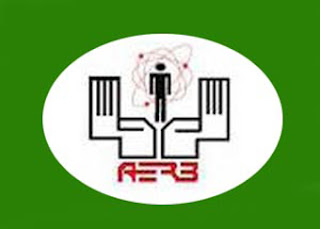August 29, 2012
The People’s Movement Against Nuclear Energy (PMANE)
Idinthakarai & P.O - 627 104
Tirunelveli District
Tamil Nadu
The Comptroller and Auditor General of India
9 Deen Dayal Upadhyaya Marg
New Delhi 110 124
Dear Sir:
Greetings! We would very much like to thank you for the CAG Report No. 9/2012-13 on the “Activities of Atomic Energy Regulatory Board.” This is a timely and crucial report as it points out so many flaws and problems in the regulatory mechanism of the atomic energy establishment in India. The report also rightly points out the need to bring about an “empowered and independent” Nuclear Safety Regulatory Authority with strength to its hands and teeth to bite.
It would have been nice and appreciable if the Prime Minister of India, who is also the Atomic Energy minister, had welcomed your report and assured effective and necessary follow-up efforts. Hopefully, he may break his deafening silence at some point and reassure the people of our country about your findings and conclusions. We would also earnestly hope that the PM would give more importance to the safety and well-being of the people of India than the profit of Russian, American, French, Australian and other countries’ nuclear power agencies and companies.
As the Nuclear Power Corporation of India Ltd. (NPCIL) has pointed out in its Annual Report 2011, “NPCIL is currently constructing single larger sized units of 700 MW and 1000 MW. Some of the units planned include Light Water Reactors of more than 1000 MW. More sites are also approved by the Government of India. With the ongoing capacity expansions, the NPP sites would go up to 13 from the existing 7 soon. By 2032, nuclear power is expected to contribute 9% of the total energy requirement of the country.”
All these plans mean a considerable number of our Indian citizens may be living near large nuclear parks that may house several very big nuclear power plants in some 13 locations all over the country. We must note that our people’s hard-earned money is going to be spent on these projects without giving them any information, or involving them in the decision-making processes. Foreign countries, companies, middlemen, Indian brokers, contractors, politicians, bureaucrats, business houses and benamis are all going to make a killing in all this huge international nuclear business at the cost of the poor people of India.
Although the Atomic Energy Commission (AEC) was established in 1948, and thousands of crores of rupees have been pumped into this nuclear energy department, all we have got so far is hardly 4,780 MW of power and a few nuclear bombs whose veracity was challenged even at the time of their testing in May 1998 by a few members of the very testing team.
When the Department of Atomic Energy (DAE) and the NPCIL talk about nuclear power projects, they erroneously argue that these projects are inexpensive and produce power at much less cost than thermal, hydro and other sources. In fact, these departments do not take into consideration the pre-project expenses such as land acquisition and compensation, and other preparatory expenses; and the post-project expenses such as decommissioning, waste management and so on. These costs and expenses must be included when we assess the cost of the power if we are professional, truthful, and responsible. Of course, there are so many other hidden costs such as damage to the eco-system, marine life, food security, nutrition, health and well-being of the people that we cannot possibly assess or audit.
The building and the operational phases of the nuclear power projects are also so rampant with corruption, kickbacks, commissions, wastefulness, shoddiness, theft and negligence. There is hardly any transparency, accountability and popular participation. No details, data or information is ever given to the public representatives or the media persons, or the local people. There is hardly any open debate in the Parliament about the commissions and the omissions of the AEC, DAE, NPCIL or other related bodies.
Given this culture of secrecy, opacity and impertinence, there is a clear need for a thorough and comprehensive financial audit of each of the power plants, DAE-run institutions and other nuclear energy-related establishments in our country. We would very much like to request you to do such a financial audit of all of the above institutions and let the country know the whole truth please.
Thanking you once again on behalf of the people of India for the report on the AERB, we send you our best personal regards and all peaceful wishes,
Cordially,
S. P. Udayakumar M. Pushparayan Fr. F. Jayakumar M. P. Jesuraj
V. Rajalingam
V. Rajalingam

